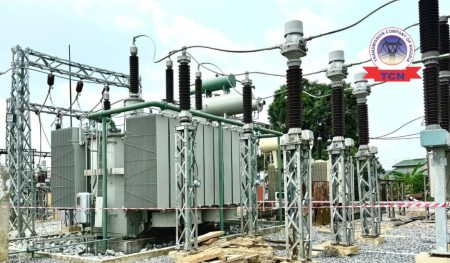Nyesom Wike, the Minister of the Federal Capital Territory (FCT), expressed his gratitude to the residents of Abuja, particularly those affected by the ongoing road construction projects, for their sacrifices towards the city’s development. He acknowledged the inherent challenges of urban development, specifically highlighting the displacement from ancestral homes that some residents faced due to the construction of the newly inaugurated Arterial Road N5. The minister recognized the initial resistance from the affected communities but emphasized the eventual understanding and cooperation that paved the way for the project’s completion. He further admitted that while compensation had been paid, it could never truly equate to the loss of traditional homes and the emotional ties to the land.
The newly commissioned Arterial Road N5, stretching from Life Camp Junction to Ring Road Three, is a significant infrastructure project aimed at alleviating traffic congestion in several key areas of the FCT, including Dape, Gwarimpa 1, Kado, Karsana, Idu, and Dambora. The road’s strategic location and connectivity are expected to improve access to the Nnamdi Azikiwe International Airport, facilitating smoother travel for residents and visitors alike. This infrastructural improvement underscores the FCT administration’s commitment to enhancing the city’s transportation network and addressing the growing traffic challenges arising from Abuja’s expanding population and urban development. The completion of this arterial road represents a crucial step towards achieving a more efficient and interconnected transportation system within the city.
Beyond the immediate benefits of improved traffic flow, the Arterial Road N5 project symbolizes a broader commitment to modernizing Abuja’s infrastructure and enhancing its appeal as a modern, well-planned capital city. The development of efficient and reliable transportation networks is essential for attracting investment, stimulating economic growth, and improving the overall quality of life for residents. By investing in such critical infrastructure, the FCT administration aims to position Abuja as a leading city in Africa, capable of competing on the global stage. The road project, therefore, serves as a tangible manifestation of the ongoing efforts to transform Abuja into a world-class city.
Minister Wike’s acknowledgement of the residents’ sacrifices underscores the human cost of development and the importance of recognizing the impact of such projects on local communities. While the long-term benefits of improved infrastructure are undeniable, it is crucial to address the immediate concerns and needs of those directly affected by construction activities. The minister’s expression of gratitude reflects a sensitivity to the disruptions and emotional toll that displacement can have on individuals and families. This recognition of the human element in urban development contributes to a more nuanced understanding of the complexities involved in transforming urban spaces.
Furthermore, Wike’s remarks highlighted the support he received from friends and associates from various states, including Rivers, Enugu, Abia, and Sokoto. He expressed his gratitude for their unwavering backing, emphasizing that their support fueled his determination and provided a sense of hope for Rivers State. This acknowledgement of his support network points to the importance of collaboration and partnerships in achieving common goals. It also suggests a broader political context, where alliances and relationships play a crucial role in navigating the complexities of governance and achieving desired outcomes.
In conclusion, the inauguration of the Arterial Road N5 signifies a significant stride in Abuja’s infrastructural development, promising improved connectivity, reduced traffic congestion, and enhanced access to vital areas of the city. Minister Wike’s expressions of gratitude to the affected residents and his acknowledgement of the sacrifices made underscore the human dimension of urban development and the importance of addressing the needs of local communities. The project represents not just a physical road but a pathway towards a more efficient, connected, and vibrant Federal Capital Territory. The recognition of support from across state lines further points to the collaborative nature of progress and development.













